15 Award-Winning Spanish-Language Books Translated into English
From "Paradais" by Fernanda Melchor to "Jawbone" by Mónica Ojeda, these are some of LATAM's acclaimed books translated into English

Photos: Picador; Zando; Charco Press
Latin American literature is not as appreciated in the U.S. as it should be. Due to language and cultural barriers, books that are beloved, appreciated, and awarded in LATAM often fail to make as much noise up north. Even in the Latinx community, not everyone can read or speak Spanish, which makes it hard to access Spanish-language books published in their home countries. That’s why we decided to put together a list of award-winning books that were originally written in Spanish that have been translated into English in the U.S. and the U.K. Obviously, this isn’t a comprehensive list but a place to start as you continue reading books by authors from LATAM countries. Read on to learn more about 15 award-winning Spanish-language books that have been translated into English that you need to read.
Tender Is the Flesh by Agustina Bazterrica

Tender is the Flesh by Argentine writer Agustina Bazterrica follows Marcos, an employee at a local meat processing plant. Except it’s not just any meat he’s working with or making a living off of. After a virus made animal meat poisonous for people to consume, governments all over the world legalized the consumption of human meat, otherwise known as “special meat.” Marcos’s work of killing people for food haunts him, though he tries to keep his mind on his job like any other. But when he’s given a live specimen to process, he can’t help his inherent humanity and begins to treat her like a real person, changing everything he thought he knew about empathy, greed, and power. Originally published in Spanish in 2017, it was translated into English in 2020 and received Argentina’s Premio Clarin de Novela prize, which is one of the most prestigious awards in Latin America that publishes the winner’s book.
Like Water for Chocolate by Laura Esquivel

Like Water for Chocolate by Laura Esquivel is a work of classic Mexican literature that follows Tita, a girl growing up on the De la Garza ranch with her family, including her tyrannical mother Mama Elena, whose emotions are infused into the food she cooks. As the youngest of her sisters, Tita is expected to follow the tradition of forgoing marriage in order to take care of her mother until she dies. Against her family’s wishes, however, Tita falls in love with a local boy named Pedro but everything takes a turn when he marries her sister instead. A story of loss, love, and passion, this has defined Latin American literature since its original publication in 1989 (it was translated into English in1992) and two years later it won the American Bookseller’s Book of the Year for Adult Trade award, which is given to the book that ABA members most enjoyed selling that year. Plus, not only was the 1992 film adaptation nominated for a Golden Globe, the new TV series adaptation on Max has earned critical praise.
The Bad Girl by Mario Vargas Llosa

The Bad Girl by Mario Vargas Llosa follows Ricardo Somocurcio, who falls in love with a “bad girl” known as Lily during the 1950s in Lima, Peru when she appears in his life then disappears as quickly as she came. She reappears as a revolutionary in 1960s Paris, the wife of an Englishman known as Mrs. Richardson, and the mistress of a Japanese businessman in Tokyo. She treats him poorly and yet he is doomed to worship her forever. As Ricardo pursues a romance with this shape-shifting woman, he crafts a love story defines by power and obsession. Published in 2006, it would go on to win the 2010 Nobel Prize in Literature in 2010.
The House of the Spirits by Isabel Allende
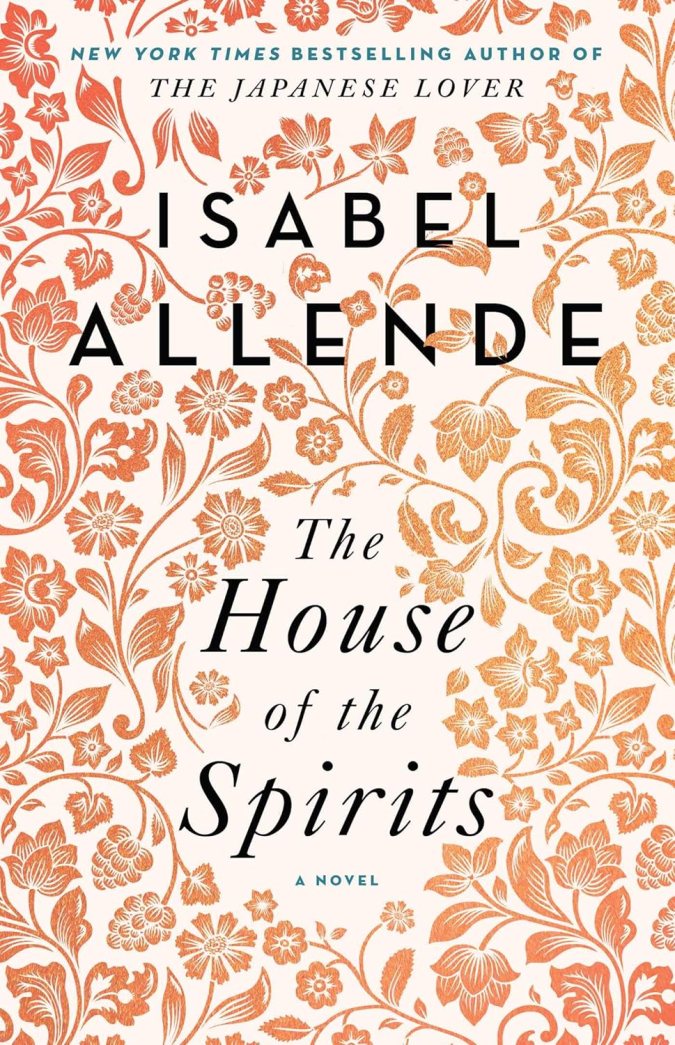
The House of the Spirits is the debut novel by famed Chilean author Isabel Allende that follows three generations of the Trueba family: Esteban, the patriarch who is a volatile man obsessed with gaining political power; Clara, a delicate woman with an inexplicable connection to the spirit world; Blanca, who embarks on a forbidden love affair to defy her father; and Alba, Blanca’s daughter and Esteban’s granddaughter who is both beautiful and strong-willed, destined to lead the family and their country into a new revolution. Touching on love, magic, and fate, the book won the Best Novel of the Year award and Panorama Literario award during the year of its publication in 1982, which specifically recognizes exemplary work by Chilean authors.
Die, My Love by Ariana Harwicz

Set in the French countryside, Die, My Love by Argentine author Ariana Harwicz tells the story of a woman who is battling her demons, torn between exclusion and wanting to belong, being free and feeling trapped, wanting family and planning to burn the house down. As she grows increasingly erratic, her family gives her surprising leeway but she still feels stifled and repressed with the burdens of motherhood, womanhood, love, desire, and marriage, inevitably making her way toward a breaking point. The book was longlisted for the Man Booker International Prize in 2018, which awards the best work of translation from authors of any nationality each year.
Hurricane Season by Fernanda Melchor

Hurricane Season by Mexican writer Fernanda Melchor takes place in a Mexican village that is forever changed when a group of children find the corpse of a witch near the irrigation canals. Suddenly, everyone wants to investigate how and why she was murdered, each character more unreliable than the next and new acts of brutality and violence happening everyday. Still, the book highlights the shred of humanity hidden inside every person, creating an unforgettable portrait of a single community. It is the recipient of multiple awards and honors, including being longlisted for the National Book Award and shortlisted for the Booker Prize (which honors any book written or published in English), winning the Internationaler Literaturpreis award for its German translation.
Chilean Poet by Alejandro Zambra

Chilean Poet by Alejandro Zambra, who is himself a Chilean poet, follows its titular character Gonzalo, an aspiring poet who reunites with his first love, Carla, at a nightclub in Santiago. Though Carla now has a six-year-old son named Vicente, Gonzalo is determined to be with her and the three of them eventually become a family. But soon, their ambitions pull them apart, whisking Gonzalo away to New York. Years later, Vicente inherits Gonzalo’s love for poetry and meets Pru, an American journalist lost in Santiago. He encourages her to write about living Chilean poets, which leads her to a dysfunctional but loving eccentric community, perhaps leading Vicente and Gonzalo back to each other. Told with tenderness and insight, this is a story about chosen families, identity, birthright, betrayal, manhood, and ambition. Published in 2022, it was recognized as the New Yorker’s Best Book of the Year and one of Wall Street Journal Top 10 Books of the Year.
Jawbone by Mónica Ojeda

Jawbone by Mónica Ojeda follows two friends, Fernanda and Annelise, who are so close that they are almost sisters made up of an inseparable double image. But then, Fernanda ends up bound on the floor of a deserted cabin, held hostage by a teacher and estranged from Annelisse, and readers are taken through the journey that led up to this moment. From when the girls and their friends are led through a dangerous ritual to a rhinestoned, Dior-scented, drag-queen god of her own invention. Even more so, the girls share a perilous, violent secret, all while their teacher Miss Clara struggles to preserve her sanity as she grows more obsessed with imitating her dead mother. Exploring the horror of adolescence, desire, and fear, the book was a finalist for the 2022 National Book Award for Translated Literature and the 2023 Lambda Literary Award in Lesbian Fiction, and was also longlisted for the 2023 PEN Translation Prize.
Paradais by Fernanda Melchor
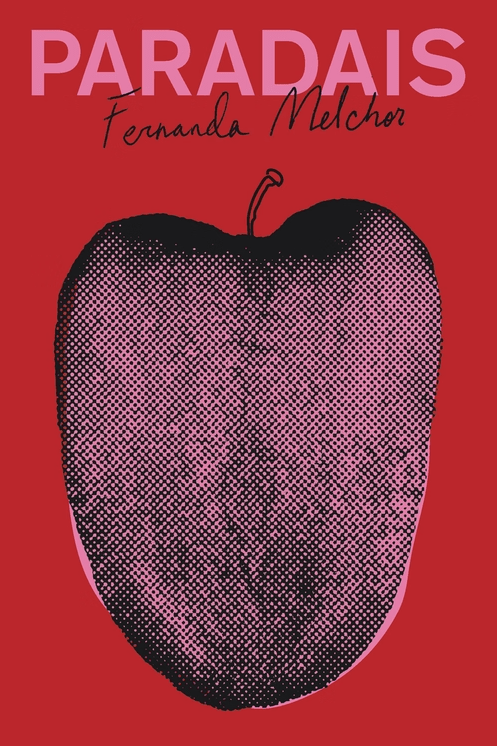
Paradais by Fernanda Melchor follows two misfit teenagers: Franco Andrade, who is lonely, addicted to porn, and obsessed with seducing his married neighbor; and Polo, a gardener who dreams about quitting his job and fleeing his mother and their village. Knowing they will never get what they think they deserve, the boys hatch a scheme to get exactly what they want, regardless of who stands in their way. Exploring the racist, classist, and hyperviolent tendencies of Mexican society, it was longlisted for the International Booker Prize in 2022.
Tender by Ariana Harwicz
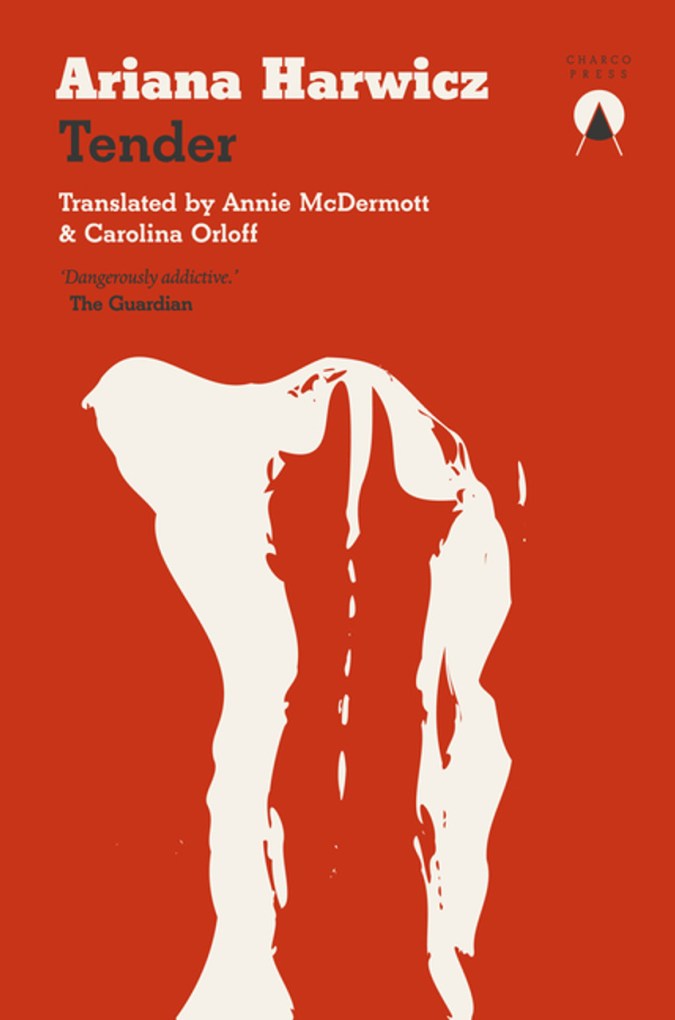
Tender by Ariana Harwicz is the third installment in the author’s “Involuntary Trilogy,” which follows a mother undergoing madness and transforms the French countryside into a dreamscape of connected imagery: animals, desire, bodily functions, the comfort of a teenage son. A critic of the bourgeois and conventionality of their small town, the mother pulls her son out of school, engaging in more antisocial and dangerous behavior that threatens to undo them both. The book has been honored many times since its publication in 2022, being longlisted for the Man Booker International Prize; shortlisted for the Society of Authors Valle-Inclán Prize (which honors the best Spanish-language books that have been translated into English), Internationaler Literaturpreis, and Republic of Consciousness Prize (which honors books that have been published by small presses in the UK and Ireland); and a finalist for the Best Translated Book Award.
Monstrilio by Gerardo Sámano Córdova

Monstrilio by Mexican writer Gerardo Sámano Córdova follows Magos, a wife and mother who has just lost her eleven-year-old son Santiago to cancer. On his deathbed, she decides to cut out a piece of his lung and, acting on maternal instinct, grief, and a folklore, she feeds and cares for the lung until it gains new life in her family’s decaying Mexico City estate. Over time, Monstrilio grows into a carnivorous being and later, into the Santiago he once was. But as his violent, animalistic impulses grow stronger even with the help of his biological and chosen family, he threatens to destroy his second chance at life. Upon its 2024 publication in English, it won the 2024 Balcones Fiction Prize (which recognizes an outstanding work of fiction or poetry) and was a finalist for the VCU Cabell First Novelist Award, which recognizes the best debut novels.
Aura by Carlos Fuentes

Aura by Mexican writer Carlos Fuentes tells the story of Felipe Montero, a man who is hired by an aged widow to edit her deceased husband’s memoirs. When he meets her niece Aura, he is immediately taken by her beauty and green eyes. As his passion for Aura grows, he gradually uncovers the true nature of the relationship between Aura and her aunt, propelling the story forward to an extraordinary discovery. For the work, Fuentes won the Cervantes Prize, one of the highest literary honors in Spanish-language literature, in 1987.
The Naked Woman by Armonía Somers
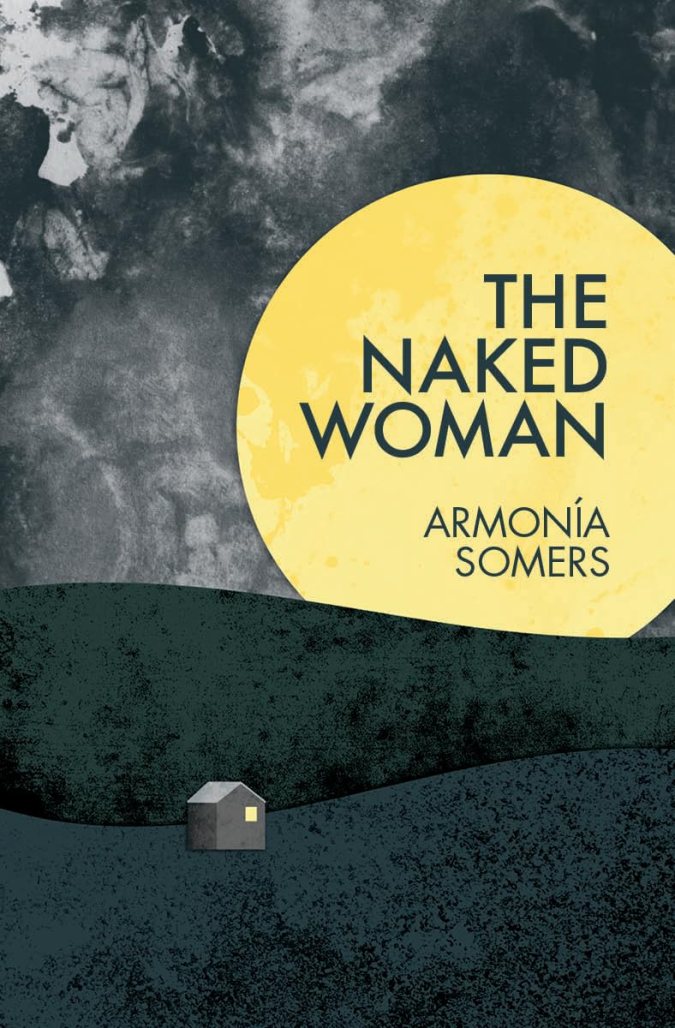
The Naked Woman by Uruguayan writer Armonía Somers, originally published in the 1950s, is a sharp, brilliant critique of Enlightenment values. Set in Uruguay, a woman has a feminist awakening and drives her village to madness. Brimming with brutal depictions of misogyny and violence during this time period, the book immediately captured Spanish-speaking readers with its shocking and erotic content. It was translated into English in 2018 and shortlisted for the National Translation Award.
The Aleph and Other Stories by Jorge Luis Borges
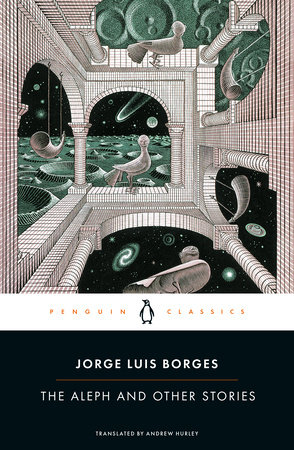
The Aleph and Other Stories by famed Argentine writer Jorge Luis Borges is a collection of short stories by Jorge Luis Borges that explores the trickiness and magic of philosophical puzzles and supernatural surprises. Spanning time and place, we enter the minds of an unrepentant Nazi, an imprisoned Mayan priest, fanatical Christian theologians, a woman plotting revenge against her father’s killer, and a man waiting for his assassin in a Buenos Aires guest house. Alongside these stories are also haunting vignettes about literary imagination, public fame, and identity. Throughout his career, Borges won many awards including Mexico’s mot prestigious award, the Alfonso Reyes Prize in 1973.
One Hundred Years of Solitude by Gabriel Garcia Marquez

One Hundred Years of Solitude by Gabriel García Márquez follows seven generations of the Buendiá family in the mythical town of Macondo. Throughout the town’s rise and fall, birth and death, readers will meet unforgettable men and woman brimming with truth, compassion, and magic. Today the book is considered one of the most important books in Latin American literature and won Márquez the Nobel Prize in Literature in 1982.













